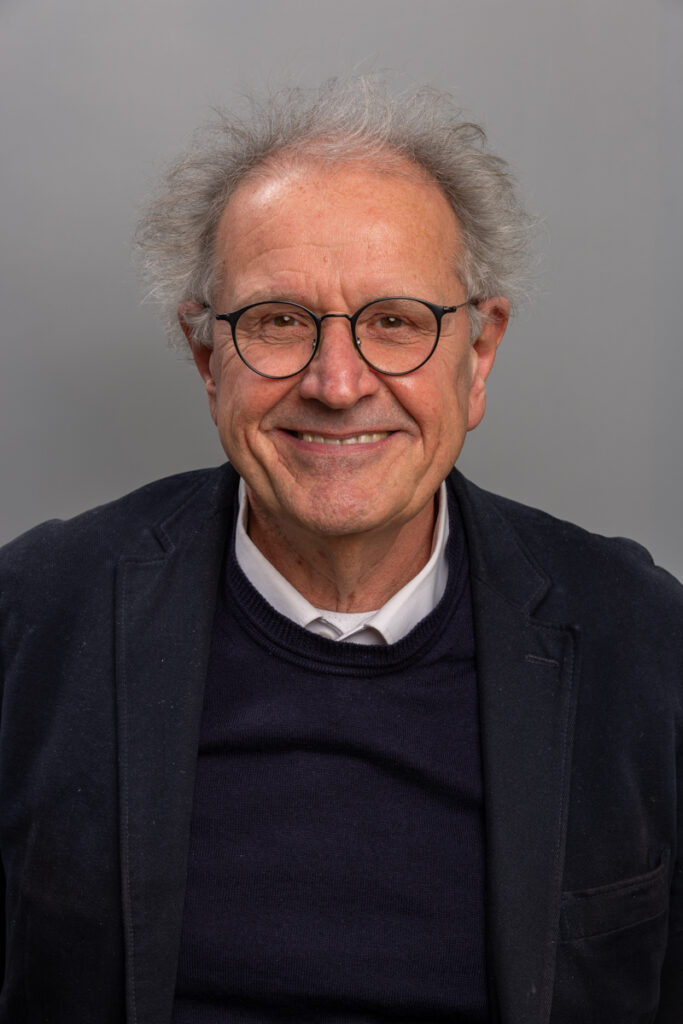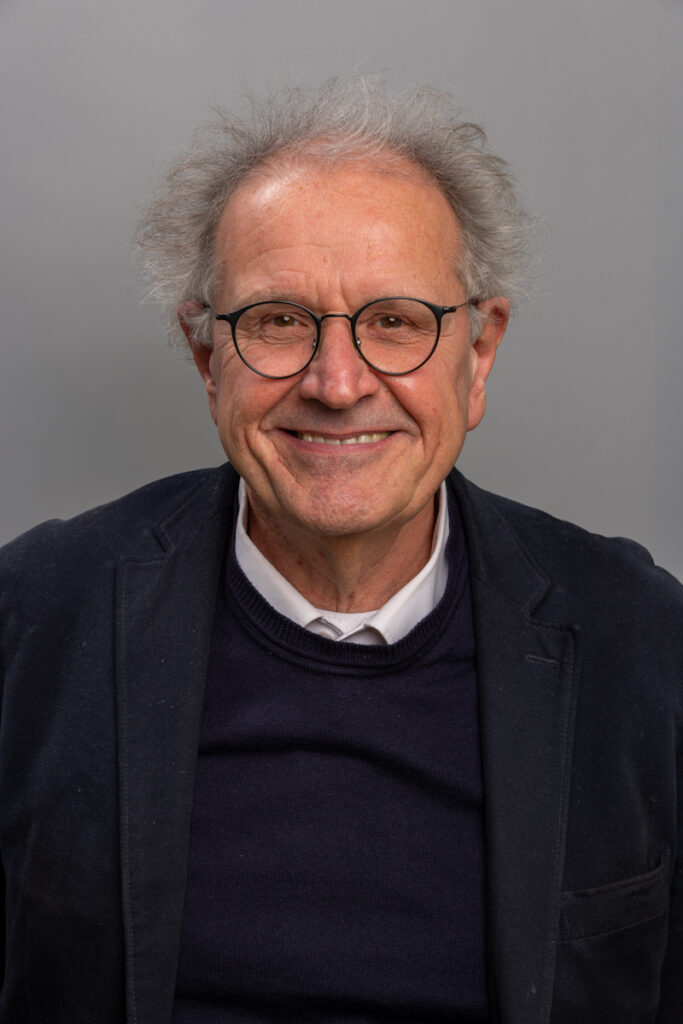Religious orthodoxy and the future of religion: A conversation with Philippe Portier
Religious orthodoxy and the future of religion: A conversation with Philippe Portier
In an interview with the European Academy on Religion and Society (EARS), Philippe Portier, a French scholar on Catholicism and secularism, discusses religious orthodoxy and its impact on the future of religion. While distinguishing between institutional and informal orthodoxy, he reflects on the three possible futures: secularisation, post-secularisation, or polarisation. Concerned mostly about polarisation, Portier suggests ‘interculturalism’ as a way to mitigate the growing divides between secularism and religion.
The contemporary experience of religious orthodoxy and its influence on the future of religion is a topic of vital importance and interest. The European Academy on Religion and Society (EARS) explores this topic in an interview with Philippe Portier, a French political scientist and historian renowned for his expertise in Catholicism and secularism. The interview focuses on the social impact of religious orthodoxy and its potential to shape religion’s future, highlighting significant trends that might affect religious dynamics, especially in terms of how orthodoxy contributes to social polarisation and exclusion. Portier’s research is centred on the interaction between religion and politics, especially the concept and evolution of secularism in society.
Defining religious orthodoxy
“Religious orthodoxy is a central theme in both my scholarly pursuits and contemporary society,” remarks Portier. He defines religious orthodoxy in two primary forms: institutional and informal, each marked differently by three essential features – institutionality, normativity, and radicality. “Institutional orthodoxy,” he explains, “aligns closely with religious institutions, adhering to their norms and rules. It embodies institutionality, normativity, and it is generally not radical: while it often rejects the principles of moral liberalism (in terms of managing intimacy), it accepts the formal rules of constitutional democracy. In contrast, informal orthodoxy, less tied to institutionality and normativity, tends towards radicality and can more easily lead to radicalisation.” Portier emphasises the growing significance of this ‘new’ type of orthodoxy, characterised by a personal sense of belonging and a subjectivity that allows individuals to create their own orthodoxy, often leading to a broader radicalism that challenges not only the liberal policies but also the constitutional foundations of society.
The contemporary impact of religious orthodoxy
Portier’s definition of religious orthodoxy is significant in understanding current religious trends. It provides a framework to analyse the increasing polarisation in societies between secular and religious populations and the rise of religious populism. He identifies a growing trend towards institutional orthodoxy within all religious worlds: in Islam, in Protestantism with Evangelicals, in Judaism, and in Catholicism – especially since Pope John Paul II’s era. This trend coexists with an escalating radicalisation of secularisation, in that the non-religious population is less and less influenced by Christian culture and more and more inspired by relativistic thinking. That leads to a notable polarisation in European society. Portier explains, “Currently, the movement in favour of the strengthening of institutional orthodoxy is becoming more important in many religions. At the same time, there’s the radicalisation of secularism.” But it is above all informal orthodoxy that is on the increase, as shown by the rise of Christian populism, and also radical Islam, which are being built outside the traditional structures of belonging. This informal orthodoxy is both the product of secularisation (because of its subjective approach to religion) and its opponent (in that it seeks to recreate an organic social universe). These two figures of orthodoxy sometimes form an alliance (as was the case in Poland between the Law and Justice party and the local episcopate), but this is far from always the case.
“Currently, the movement in favour of the strengthening of institutional orthodoxy is becoming more important in many religions.”
Future trends in religion
Portier’s observation about rising radicality has significant implications for the future. Whether found in religious orthodoxy or secularism, it intensifies the divide between two visions of the world, the first supported by a relativist liberalism, the second by an objectivist morality. This results in far-reaching polarisation.
According to Portier, therefore, the future of religion in the next 20 to 30 years is shaped by three main possibilities: “continued secularisation,” “post-secularisation,” and “polarisation.” The first trend, continuous secularisation, sees a decline in religious transmission and institutional belonging, leading to a more secular society. This perspective is supported by British sociologist Steve Bruce and Swiss sociologist Jörg Stolz, both of whom suggest a pessimistic outlook for religion’s future due to the lack of generational transmission. In contrast, post-secularisation, as argued by the late Peter Berger, suggests a potential resurgence of religion in response to economic and ecological challenges, and cultural insecurity. This trend is evidenced by the growth of evangelical movements and the continued influence outside Europe, in a more radical mode, of major religions like Islam, Hinduism, and Buddhism.
Portier himself aligns with the concept of polarisation. Reflecting specifically on Europe, he explains: “In our society, there is not only one trend or tendency. There are two tendencies, namely continued secularisation and religious reaffirmation.” This speaks of a divided future. On the one hand, there is a segment of society moving towards secularism, and on the other, a group reaffirming religious orthodoxy in its two forms (institutional and informal) as a counter to secularisation. He elaborates, “So what I call polarisation is this division of the European society between two parts of itself.” Portier notes that this polarisation leads to what sociologist James Hunter describes as a ‘War culture’, with secular and religious groups holding increasingly divergent views. It manifests not only in religious spheres but also in political and social realms, influencing attitudes towards immigration, cultural norms, and national identity. Portier accordingly notes, “There are more and more political parties related to the informal orthodoxy [Christian populisms], and on the other hand, there are parties [centre and left] that reflect secularisation and more openness to immigration and liberal rules. As far as institutional orthodoxy is concerned, it is generally more open to immigration than populist movements, even when they refer to Europe’s Christian roots, while defending a more restrictive policy of intimacy than that advocated by secular citizens.” Portier adds that the institutional religious sphere in Western countries has become increasingly pluralised over the last few decades, with Islam in particular gaining ground. This pluralisation can also concern the secularised population: a minority of them defend theses similar to those of the Christian populists.
Furthermore, Portier compares these European dynamics with global trends. He observes similar patterns of polarisation between secularisation and religious reaffirmation in other parts of the world, including Brazil and Arab nations: “It is interesting to see that the movement I described can be seen in many societies, not only in Western countries.” This global trend indicates a growing divide between secular and religious populations, each adhering to divergent values and worldviews. “In all religions, there is a sort of closure which attempts to separate the religious universe from the liberal universe,” Portier further explains.
Politics and polarisation
Portier sees the polarisation of religion and society leading to a deepening entanglement between religious beliefs and political dynamics, not only in the context of Europe but beyond. Portier explains, “The sphere of political leaders is a reflection of what you can see in civil society.” Portier references the polarisation in Brazil, where the religious and secular divide has significant political implications, affecting the support for leaders like Lula and Bolsanaro. He remarks that in Brazil, “there is polarisation between religious, the Evangelic faithful, and secularism.” In other words, political landscapes are embracing the emerging divide, with parties aligning with either secular liberal views or orthodox beliefs.
Portier discusses the practical implications of the intersections of polarisation and politics on public policies. “As a result of this polarisation, there’s very often populism that appears against the secularisation of society,” he points out. “When informal orthodox parties take the government, then very often the policies change in three domains: towards immigration, towards intermediary institutions, and towards intimacy.” When informal orthodox parties govern, they typically tighten immigration restrictions to preserve their values, align intermediary institutions like schools with their religious beliefs, and enact conservative laws on personal and family matters, reflecting their specific moral doctrines. This change reflects a shift in national policy priorities, driven by the underlying religious orthodox beliefs.
“The sphere of political leaders is a reflection of what you can see in civil society.”
Interculturalism
Portier believes that for policymakers, community leaders, and individuals, understanding the religious and cultural diversity of the population is crucial. It creates challenges in uniting increasingly disparate social groups. This, for Portier, requires thoughtful engagement with strategies that may foster mutual understanding and respect for diverse viewpoints: “I think we can find a solution, not by being a populist, but by being liberal in a certain way.” Portier himself offers a potential solution to this divide: “interculturalism.” He explains that “interculturalism is to accept the differences when the differences accept the liberal and constitutional views of our society,” and offers it as a middle path between assimilationism and multiculturalism. Interculturalism is, therefore, a potential solution to reduce societal tensions. Interculturalism, he believes, can “make people happier to live together,” acknowledging and integrating “cultural and religious differences within a framework of liberal constitutionalism.”
Exclusion and the future
In his final analysis, Portier warns that without a concerted effort to bridge these divides, such as through interculturalism, societies may continue to fragment in the face of diverging religious and secular values. He notes, “There is a gap between the different parts of society, which is a motive of concern: how do you gather these populations that are so separated in their minds and social practices?” He highlights the urgency of addressing the challenges posed by the current socio-political climate. “It is a very difficult situation today in Europe because you have a movement of exclusion,” he warns. “Europe is becoming a fort that attempts to protect, which I find very disturbing.” Whether it is the informal orthodoxy of Christian populists in Eastern Europe or defenders of populist secularism in Western Europe, there are many government parties that have founded themselves on excluding others: “Consequently, they can exclude people like migrants or Muslims. We are rediscovering the word of crusades in our societies.” This also, ironically, leaves the conventional religious orthodoxy in a lurch: “Informal orthodoxy is not always in phase with the institutional orthodoxy – even if it can be like in Poland or Hungary. Very often, [Christian] populists say that the institutions are too liberal towards others [migrants] and are not realistic with questions of frontiers or borders.” Portier suggests the traditional form of religious orthodoxy is losing ground.
“There is a gap between the different parts of society, which is a motive of concern: how do you gather these populations that are so separated in their minds and social practices?”
Human orthodoxy
Philippe Portier’s examination of religious orthodoxy and the future of religion leads to a significant realisation. Orthodoxy, in its essence, transcends religious confines, emerging today as a fundamental trait which seems to be an efficient means to respond to the contemporary uncertainty.
The rise of informal orthodoxy, characterised by its individualism and subjectivity, challenges traditional religious frameworks by aligning with a broader social shift towards personalised and diverse self-expression. Herein lies the paradox: ‘radicality’ within informal orthodoxy, even if it leads to an authoritarian regime, is reimagined as a form of freedom. It reflects a pursuit of freedom in belief and expression, where individuals reshape orthodoxies to align with their personal convictions, embracing the structures of orthodoxy as a chosen path rather than an imposed one.
The polarisation highlighted by Portier, therefore, can be understood as diverse and deep-rooted orthodoxies existing in opposition to each other. His advocacy for interculturalism becomes even more significant in this context, providing a pathway to reconcile, much more than populist exclusion or integral multiculturalism, the varied cultural families in our societies. Interculturalism, founded on shared values of freedom and respect for individual beliefs, aims to bridge gaps.
Who is Philippe Portier?

Philippe Portier, born on October 25, 1955, is the co-director of the International Observatory of the Religious (Observatoire international du religieux, ORI), a joint research laboratory between the Groupe Sociétés, Religions, Laïcités (GSRL) and the Centre de recherches internationales (CERI). He has held academic positions at the University of Rennes 1, École Pratique des Hautes Études (EPHE) in Paris, and the Institut d’études politiques de Paris (Sciences Po), and has been a visiting scholar at prestigious universities, including the University of Stanford, the University of Ottawa, the University of Sao Paolo, the University of Roma, the University of Kyoto, and the College of Europe.
Portier’s research is centred on the interaction between religion and politics, especially the concept and evolution of secularism in society. His extensive works, such as L’État et les religions en France. Une sociologie historique de le lacit (2016), La religion en France. Entre secularisation et recomposition (2021), and Religion and secularism in contemporary France (2022), look into the history and development of secularism in France and its comparison with other European models. Portier’s approach is interdisciplinary, “I try to work with theology when studying religions and think about religion with social sciences, political science, and history.” This provides him with a unique perspective on religion’s impact on society. From 2018 to 2021, he was also a member of The French Independant Commission on Sexual Abuse in Church (Commission independante sur les abus sexuels dans l’Eglise – CIASE). The independent commission led by Jean-Marc Sauve revealed that between 2,900 and 3,200 paedophiles have been active in the French Catholic Church since 1950, uncovering a shocking scale of sexual abuse within the institution.
This interview was conducted by Muhammad Faisal Khalil and Simone Kroes.
Explore the interview series on the future of religion:
- Economy, society, and religion: Revisiting Max Weber with Mathew Guest
- Through the apocalypse: Graham Ward on religion’s future in the wake of migration
- Completing our reality: Bénédicte Lemmelijn on women shaping tomorrow’s religion
- Tradition in transition: Linda Woodhead on women’s roles in the paradoxical religion of tomorrow
- Religion at a crossroads: A conversation with Matthias Smalbrugge on the future of religion






